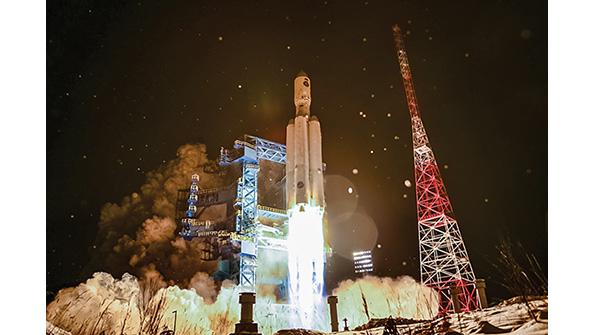
Ask the Editors: The Aviation Week Network invites our readers to submit questions to our editors and analysts. We’ll answer them, and if we can’t we’ll reach out to our wide network of experts for advice.
How will the U.S. Space Force evolve, and will Russia and China raise an equivalent branch of their military?
Jen DiMascio, Aviation Week’s Executive Editor for Defense and Space, responds:
Spurred by growing military activity in space and the need to protect U.S. and commercial assets in orbit, the U.S. created its Space Force one year ago as a separate military service. It remains in the initial stages of building, training and equipping a cadre of space professionals.
China and Russia are unlikely to follow in the footsteps of the U.S. and devote a separate branch of the military solely to space. In fact, China and Russia both reorganized their militaries in 2015—creating services that emphasized space but included other strategic disciplines as well.
The Chinese People’s Liberation Army Strategic Support Force, created at the end of 2015, is not a stand-alone military service, a theater command or the kind of unified command that the U.S. has, according to a Rand Corp. paper published in 2017. Rather, it helps launch and operate satellites and provides the Chinese military with command and control, communications, computers, intelligence, surveillance and reconnaissance and cyber and electronic warfare capabilities. It also helps in co-orbital counterspace missions.
Russia’s Aerospace Forces, also created in 2015, brings together the military’s air force, air defense and space forces. Like the Chinese Strategic Support Force, the Russian Aerospace Forces has a mission that extends beyond space to include communication and intelligence equipment and electronic warfare.
Brian Weeden, director of program planning for the Secure World Foundation, says the U.S. appears to be the only nation of the three that wanted a completely separate service. “Both Russia and China have made it clear through their policy doctrine that they feel there’s more advantage in combining space with other capabilities rather than separating it out,” Weeden says.






Comments